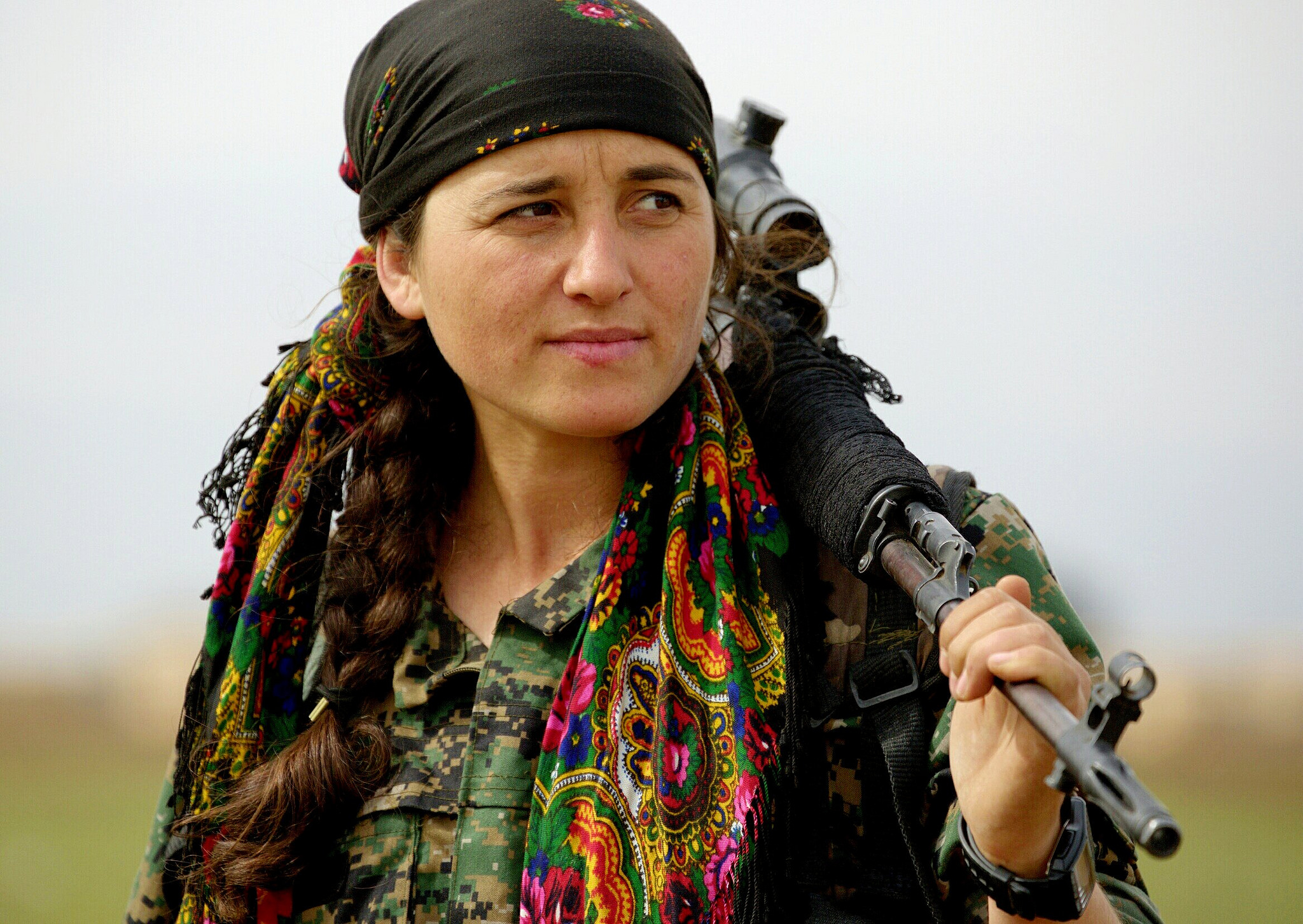Over the past three weeks, Turkey has launched a series of cross-border artillery bombardments against the U.S.-backed Syrian Kurdish People’s Protection Units (YPG), the foremost fighting-force continuously combating the Islamic State (ISIS) threat in Syria over the last five years.
This isn’t the first time Ankara has targeted the group. Turkey’s President Recep Tayyip Erdogan routinely announces he will invade all of northern Syria to destroy the YPG, invariably arguing it poses a threat to Turkey given its links to the Kurdistan Workers’ Party (PKK) that has fought the Turkish state since 1984.
While the YPG does have links to the PKK it has not, contrary to the unfounded claims of Erdogan and his government, threatened or launched any unprovoked attacks against the Turkish state. Turkey, on the other hand, has attacked the group several times and even invaded one of its territories, the isolated northwestern Syrian Kurdish enclave of Afrin, early this year.
Since late 2014 the YPG has proven itself as America’s only reliable ally on the ground in Syria against ISIS. The group sacrificed thousands of fighters repelling ISIS’s invasion of its northeastern territories in the fall of 2014, most famously in the prolonged battle of Kobani, and then in its subsequent offensives, which successfully removed ISIS from its de-facto capital city Raqqa in October 2017.
Were it not for the battle-hardened YPG, the U.S. would not have had any real on-the-ground ally to fight against ISIS. Air power alone would unlikely have done much to halt the group’s genocidal ambitions. And while Turkey borders Iraq and Syria and possesses the second largest army in the NATO alliance, it did not join the U.S.-led coalition against ISIS, assembled in October 2014, until July 2015. And even then Turkey did so since that gave it diplomatic cover to once again crack-down on the PKK in a brutal campaign that left large parts of the Kurdish cities and towns of Turkey’s Kurdish-majority southeast looking indistinguishable from ruined cities such as Aleppo just across the border in Syria.
When Kobani, which sits right on the Turkish border, was under relentless siege from ISIS Turkish President Recep Tayyip Erdogan did little more than shrug at the prospect of ISIS prevailing. His government’s antagonism against the YPG proved so great that it clearly would rather have shared its border with ISIS.
Turkey shelled the Kobani area for the first time at the end of October and followed up with subsequent shellings in early November. This saw the YPG divert manpower from its ongoing operation against ISIS forces in eastern Syria to defend any potential Turkish incursion into Syrian Kurdistan’s heartland.
The U.S. sent troops to the Syrian border with Turkey in a clear attempt to deter further bombardments. Despite this, Turkey has since launched more shelling attacks but not any ground operation.
Despite Turkey essentially shooting it in the back the YPG continued its operations against ISIS in eastern Syria. Since September this prolonged offensive, in which they are fighting well-entrenched ISIS forces in harsh weather conditions, has cost the YPG-led Kurdish-Arab forces hundreds of casualties.
Given the YPG’s continued sacrifices in the fight against ISIS Turkey’s aggressive and unprovoked attacks on the group are simply scandalous, especially given the fact they have the clear predictable result of diverting the YPG’s focus away from that fight.
Turkey’s recent actions are simply the continuation of years of aggression and threats against the Syrian Kurds. This year Turkey upped the ante by invading Afrin. Turkey claimed it was responding to over 700 attacks against “against Turkish cities” emanating from Afrin as well as confronting ISIS in these areas. Both of these pretexts were complete falsehoods. ISIS, a mortal enemy of the YPG, had no presence in the Afrin region at any time nor were little more than two dozen attacks attributable to the YPG in Afrin verified, never mind a whopping 700. And even those few verified incidents were mostly reactions to unprovoked Turkish-instigated artillery attacks or border clashes rather than unprovoked YPG attacks from Afrin against Turkey.
Before the Turkish invasion early this year Afrin was a relatively stable region in northern Syria where hundreds-of-thousands of Syrian Arabs sought shelter from other war-ravaged parts of the country. Turkey’s actions displaced at least 200,000 people and its subsequent occupation has seen Turkish-backed Islamist militiamen terrorizing Afrin’s residents by kidnapping, torturing and threatening to murder them in order to extort their families for exorbitant ransoms.
Furthermore, rather than invading Afrin in order to fight ISIS Turkey’s invasion of that territory actually benefitted that terrorist organization. A report, presented to Congress by the lead inspector general for the U.S. military’s counter-ISIS campaign just this month, noted that Turkey’s invasion resulted in the YPG diverting its manpower from its front-line positions against ISIS in a futile attempt to repel it. With less pressure being applied on it throughout the two-month Turkish operation ISIS used that window of opportunity “to recruit new members, gain resources, and conduct attacks.”
In negotiations held between the government in neighbouring Iraqi Kurdistan and the Syrian Kurdish Democratic Union Party (PYD), the political wing of the YPG, between 2012 and 2014 the latter “committed not to attack Turkey.” It has lived up to its word in spite of the Afrin invasion and all the other acts of aggression and provocations levelled against it by Turkey.
Consequently, Ankara needs to be deterred from carrying out any more flagrant acts of aggression against the Kurds of Syria.
Photo: Kurdishstruggle

